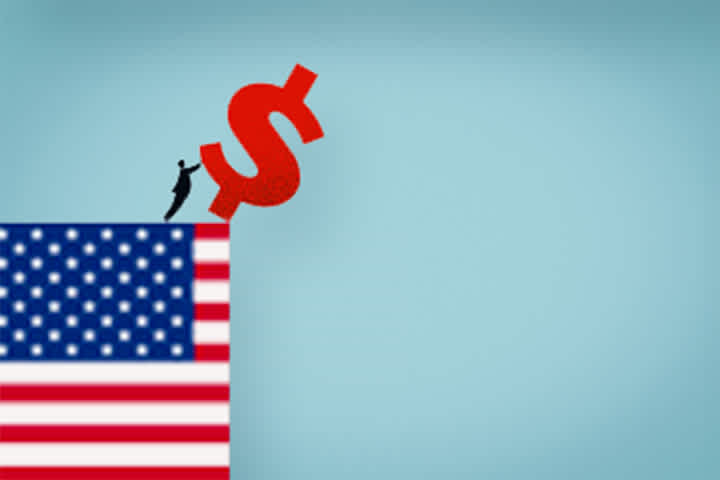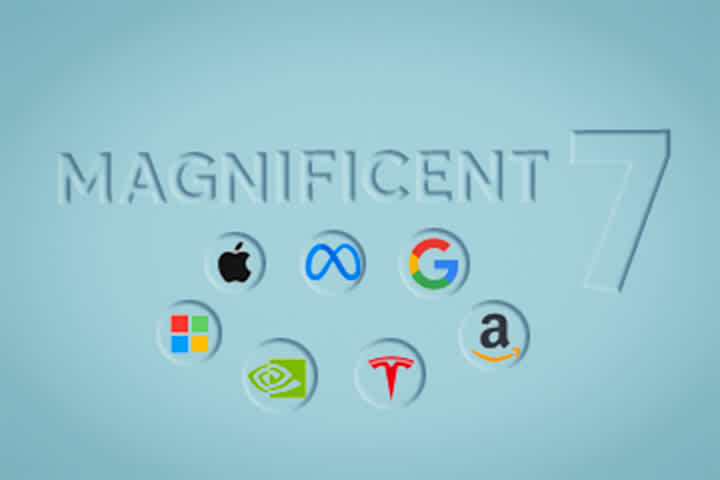Nigeria: a new hot spot for adventurous investors?
Keytrade Bank
keytradebank.be
January 04, 2024
3 minutes to read
Whether it is AI, renewable energy or India, adventurous investors are often looking out for fresh growth potential. In the hope of getting hold of a ticket to the future, they focus not only on the trends of today and tomorrow, but also on the economic and societal trends that will shape the world the day after tomorrow. Nigeria is one such market that is quietly creeping onto these investors' radar.
A huge demographic dividend
This African country is probably the largest market that investors are least aware of. On paper, however, Nigeria seems to be in a good position to post an economic miracle. With a GDP of USD 477 billion, Nigeria is already Africa’s largest economy, leaving its once-hyped challenger South Africa far behind in the economic rankings. The country is also the largest oil exporter on the continent. Its strongest trump card may be its enormous demographic potential. With 229 million inhabitants, Nigeria is the most densely populated country in Africa. Roughly half of the population – 113 million people – is aged 17 or below. Nigeria is predicted to become the third most populous country in the world by around 2050.
Ups and downs
Any investor should surely be drooling over the potential of this immense market? But wait: despite its demographic dividend and enormous economic potential, investing in Nigeria is not for the fainthearted. For example, from 2001 to 2014 the country was one of the fastest growing economies in the world, but during the term of the last president, it grew on average by just 1.4%. During the same period, the average Nigerian’s annual income fell by almost one third. Economic mismanagement and a complex foreign exchange system were some of the reasons for this. Nigeria struggled for a very long time with an overvalued currency, which put the brakes on foreign investment; under the previous president direct foreign investment shrank by 60%. In other words, it can move forwards as quickly as it does backwards.
Drastic reforms appeal to investors
A new president was elected in May 2023 – Nigeria has been considered a democracy since 1999. The president immediately put an end to the years of fuel subsidies (which alone cost the treasury USD 10 billion in 2022), threw the complicated exchange system out of the window, and fired the governor of the country's central bank, who was also considered responsible for the economic collapse. At the same time, measures were taken to stimulate private businesses and make it easier to do business in Nigeria. These were drastic and unprecedented interventions that investors welcomed with open arms: the Nigerian Stock Exchange surged by almost 40 per cent in the six months after the election. Investors hope the newly elected president can get the country back on track.
Significant challenges ahead
For the time being, the road ahead looks bumpy: the end of fuel subsidies and currency interventions have triggered an unprecedented rise in inflation. Fuel prices have tripled (in a country that is among the world's top 20 oil exporters) and the local currency has depreciated sharply against the USD. However, if the current government manages to weather this storm and eventually reverse the damaging policies of recent years, growth in Nigeria could pick up sharply. Investors seem to be focusing on this for the time being. In the long term, another challenge for the new government will be to draw up a sound education policy to unlock Nigeria’s potential human capital – its greatest asset. With English as its official national language, Nigeria also has the potential to become a new international hub for outsourced services.
Which sectors might benefit first?
If you browse the reports and forecasts from asset managers and investment specialists, you will see that telecoms and non-essential consumer goods offer attractive potential for adventurous investors. Around 90% of the population have a mobile phone or smartphone, but the infrastructure and data usage are still lagging behind. So there is still plenty of potential. In addition, regulatory changes may allow telecom operators to obtain banking licences, opening up opportunities for mobile banking (55% of Nigerians do not yet have a bank account). If access to financial services grows – as has already happened in Kenya, Senegal and Ghana, for example – this will open the door to more financial services (lending, insurance, etc.), a decline in corruption, economic growth and development. The banking sector can also benefit from this.
In parallel, there are also likely to be more new opportunities in a number of consumer segments. As GDP per capita increases, income becomes available to cover not only basic needs, but to buy more non-essential consumer goods, including packaged food and beverages, household and personal care products, household appliances, and so on.
How can you invest in Nigeria?
Anyone who wants to invest in Nigerian equities as a private investor faces a complicated task ahead. Belgian brokers and banks do not offer direct access to the Nigerian Stock Exchange. The only way to gain exposure is by investing in either a tracker or an actively managed fund. However, you wil run into restrictions here, too. Most regional trackers and funds offer either a mixed basket of African shares or a basket including other "frontier markets". As a Belgian private individual, investing in the Nigerian market is therefore a real challenge. On the other hand, a regional fund or tracker can offer an attractive compromise for those who want exposure while spreading risks and seeking to manage volatility. Many managers have also recently increased their exposure to Nigeria. In this way, you may also be able to get in on the act, although you need to keep a cool head.
Want to invest in frontier markets?
- Log in to Keytradebank.be on your laptop or desktop - Click on Search and then Advanced. In the search screen, you can search by instrument name, symbol or ISIN - Tick the asset class you want (trackers or funds) - Search for Africa or Frontier


